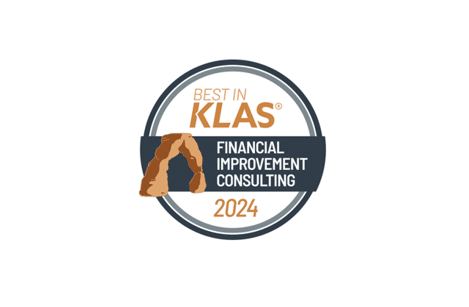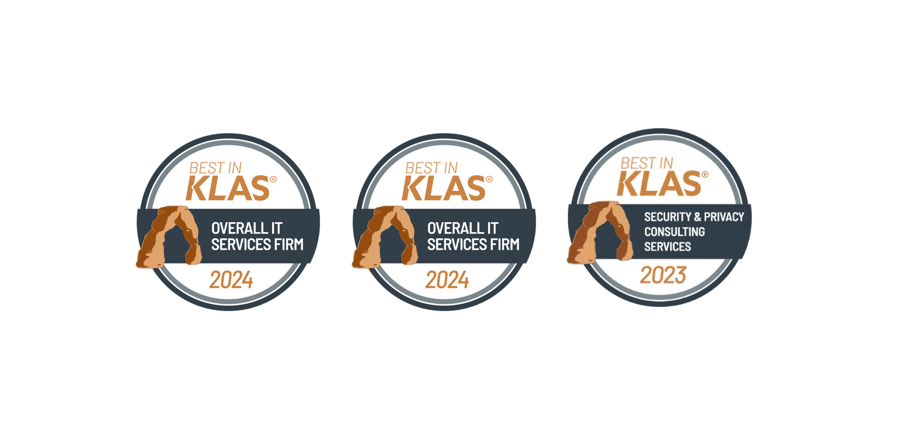Realizing Tangible AI Value in a Competitive Healthcare Market: Call Centers Emerge as a Transformative Use Case for Healthcare

Bryan Arkwright recently spoke during a CTeL (Center for Telehealth and e-Health Law) panel at the US Capitol focused on the convergence of telecommunications, healthcare, and artificial intelligence (AI). He shared the story of a recent project where Impact Advisors helped a large Midwest health system realize sustainable immediate value by transforming call center operations using recent advances in AI.
The engagement involved establishing a vision and path to vet, implement, and optimize four interconnected software products from a mix of vendors, each featuring the latest AI capabilities available. The software included interactive voice response (IVR), workforce management (WFM), call recording quality management (QM), and customer relationship management (CRM). Each of these software categories are examples of solutions that are evolving quickly due to advances in AI – including but not limited to Generative AI (Gen AI), Large Language Models (LLMs), and Large Action Models (LAMs).
Call Center Solutions are Leveraging AI
Strategically deploying new capabilities made possible by recent developments in AI resulted in direct call center improvement post go-live. Automation, customer self-service, agent satisfaction, and agent performance improved. Patients now simply state where they want to direct their call instead of relying on an antiquated touch-tone interface. The IVR software’s AI capabilities facilitate and understand verbal cues and intentions, connecting the patient, physician, or caregivers to the person, or department, they intend to reach. The health system routes incoming calls intelligently, reducing the number of patients who reach a live operator and need to be transferred. Average handle time, abandonment rate, and first call resolution each improved. Labor costs were reduced as overtime – and reliance of outsourced call agents – diminished completely.

AI Value in a Short Period of Time
The implementation of all four software systems has yielded labor savings between $145,000 and $215,000 per month by eliminating reliance on outsourced call center staff, minimizing use of overtime, reducing staff turnover, and decreasing the need for live agents. Call center staff are now more satisfied and more productive.
A previous source of patient frustration and confusion is now a seamless, cohesive experience. Unfulfilled orders are no longer falling through the cracks, as the new AI capabilities enable call center agents to ensure patients are aware of outstanding orders related to their care plans. Scheduling is more efficient, and patients miss less appointments related to the following orders: imaging, specialist referrals, and labs. In fact, in addition to the labor savings, the health system generated new revenue between $165,000 and $580,000 per month* as additional call centers and agents have adopted the CRM tool.
*Call Center #1 went live with 35 agents June 2023 and yields $165K-$225K per month in net revenue. Call Center #2 went live with an additional 65 agents in November 2023 and yields $375k-$385K per month in net revenue.
Why It Matters
Impact Advisors’ recent engagement to transform the call center operations of a large Midwest health system – and the outcomes achieved from it – underscores a few key realities about practical uses for AI in the current market.
Hospitals and health systems cannot lose sight of the low-risk / high-value AI use cases that are possible right now. Recent advances in AI have led to a rapidly evolving market of HIT solutions. Whether in the call center space – or in the clinical, revenue cycle, or back-office arenas – startups are trying to gain traction with new AI tools, while many established vendors are scrambling to rapidly incorporate more advanced AI functionality into their existing offerings.
There has been a lot of well-deserved attention around the large-scale ways that AI will transform health delivery in the coming years. Many of those use cases though – especially on the clinical front – are still fairly unproven and carry a lot of risk. While it will be critical to continue to closely monitor those uses for AI as they mature, hospitals and health systems cannot lose sight of the practical, lower-risk ways that AI can deliver tangible value right now.
Transforming the call center is currently one of the most compelling use cases for AI in healthcare delivery. Typically neglected compared to other operational areas and departments, health system call centers are often plagued by massive inefficiencies and high staff turnover – and serve as a hotbed for patient frustration. This makes the space an ideal candidate to benefit from recent advances in AI. The risk is low compared to large-scale (and still maturing) clinical use cases for AI, and the potential to realize significant value in a short period of time by improving automation and efficiency in the call center is high.
In fact, leveraging AI in call centers is one of the single most impactful use cases for healthcare delivery organizations to broadly realize the benefits from recent advances in technology. In our experience, hospitals and health systems can consistently realize a positive return on investment from call center transformation work within 24 months at approximately 2-5 times their initial investment.
Having the right partner is paramount in a chaotic market. Although recent advances in AI represent a tremendous opportunity in the near term in the form of low-risk / high-value use cases, the sheer pace of change poses challenges for providers. With virtually every category of HIT solution rapidly evolving, new vendors trying to get traction, and established IT companies quickly trying to roll out more AI-based functionality, there is a fair amount of chaos in the market. It is more important than ever to validate any claims about “new” AI functionality made by vendors – and to hold those vendors accountable for delivering on their promises and timelines. Any new AI-based capabilities also need to be fully vetted and understood before they are deployed, both in terms of efficacy and how they will impact the organization as a whole.
Most healthcare delivery organizations currently lack the bandwidth, resources, and even the AI expertise to successfully navigate such a rapidly evolving and chaotic market. That is why the right partner – one with extensive AI expertise, a strong knowledge of the underlying core HIT systems involved, and a deep understanding of all aspects of healthcare operations – is paramount.
Impact Advisors can help you envision how technology, data, and AI converge – and help you develop a plan that considers current telecom infrastructure and what can be achieved over the near and long-term. We support and augment your team with tools, resources, and expertise at every step of your journey.

























